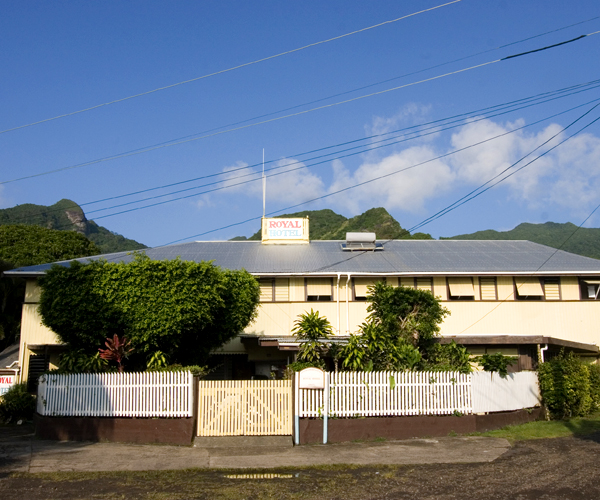
Built in the 1860s, the Royal Hotel is the oldest hotel in the South Pacific. Photo by David Lansing.
There is a little handwritten sign at the reception desk of the Royal Hotel that says “Levuka Guided Tours.” When I asked the manager about it, he said, without looking up, “A tour? Certainly. When would you like to go?”
“When are they normally scheduled?”
Without answering me, he rang the bell on his desk and an old man of indeterminate age using a whittled stick for a cane, came up the steps of the hotel. His name was Meli and he told me that sometimes he cleaned the pool and sometimes he took people’s bags to their rooms but mostly he helped out in the garden. He didn’t mention it but evidently he was also a tour guide.
Meli and I walked down the gravel road in front of the hotel, stopping before we got to a bridge where some young boys were jumping into a canal that flowed out to the ocean. Meli turned around and looked back at the hotel as if something had just occurred to him. “That there is the oldest continuously run hotel in the South Pacific,” he said. We stood there looking back at the low-slung clapboard building with its tin roof. It had to be the most modest historical venue I’d ever seen. After silently taking it in for a few minutes, we started walking again.
Along the main road, Meli used his walking stick to point out Mission Hill, to the north, telling me that if I had the gumption to climb the 199 steps to the top, I might just get lucky enough, on a clear day, to see the mystic isle of Mborutu. “That’s where the spirits of the ancient Fijians go,” he said. “I figure I’ll be joining them soon enough so there’s no need for me to climb that hill anymore.” Then he laughed at his own little joke.
We strolled into town, town being a single block of weather-worn clapboard buildings—like something out of a Western movie set—that harken back to the days when Levuka was one of the main ports of call for trading ships and whalers in the South Pacific. Meli pointed out the sights: “Levuka has three restaurants’,” he said when we stopped in front of the Whale’s Tale. “That’s one of them. They serve English food.” And then he looked away and turned up his nose. I’d eaten at the Whale’s Tale the night before and while I could understand why he’d turn up his nose, I didn’t know what he meant about it serving English food since it is run by local islanders and the food is pretty much what you’d get in Suva or Nadi, which is to say curried dishes and chow mein and walu and your choice of rice or chips with everything. Maybe Meli thinks it’s English because you can get a hamburger here.
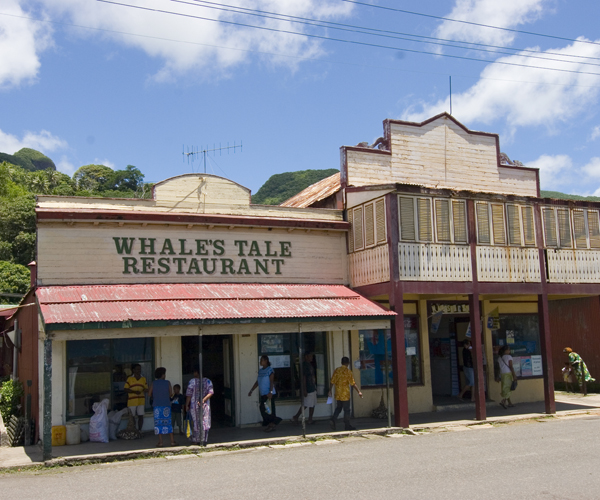
Photo by David Lansing.
Despite the “English” thing, the Whale’s Tale looks like a merchant’s store from someplace like Lahaina during the whaling boom of the 1880s. The heavy thick wooden doors are guarded by a sleeping dog who takes up most of the doorway and just dares you to disturb his rest. At night, just a few low-watt bulbs light the small room, not so much for atmosphere, of which there is none, but because light attracts the bugs at night. And electricity is expensive.
Meli also pointed out the town’s two banks which, oddly enough, are in the same building and share the same counter. Seems one burnt down a few years ago so, in the interest of neighborliness, was taken in by the other and things have stayed that way. “We’ve had some odd fires in this town,” Meli said cryptically. “You seen the Masonic Lodge yet?”
I told him I hadn’t.
“Hmmm,” he said mysteriously.
Our next stop was the old post office. “A hundred-odd years ago, there was a roost ‘round here for the carrier-pigeons that carried mail to Suva some 40 miles away as the bird flies,” he said. “My grandfather sent love letters to my grandmother that way.” He nodded his appreciation of this fact. “Took less than an hour to get a reply. Now it takes a week if you’re lucky.” We both thought about this for a moment and then Meli shook his head in disgust and spat out, “Progress!” as if it were a plug of tobacco he’d had stuck in his lip.
And then we were at the edge of town. “You want to see the fish plant?” Meli asked me.
Maybe later, I told him. “Okay, then,” he said. He turned around and I watched him walk back up the street to the Royal Hotel, stopping only once, in front of the Whale’s Tale, giving it a look and shaking his head as if he just couldn’t imagine why anyone in their right mind would ever want to eat there. Then he disappeared up the drive to the hotel.


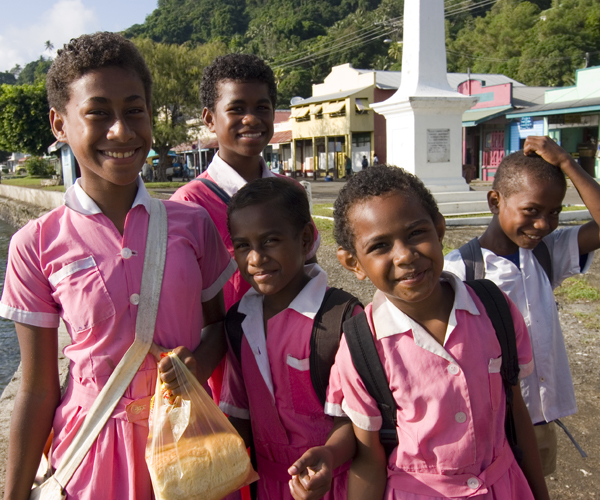
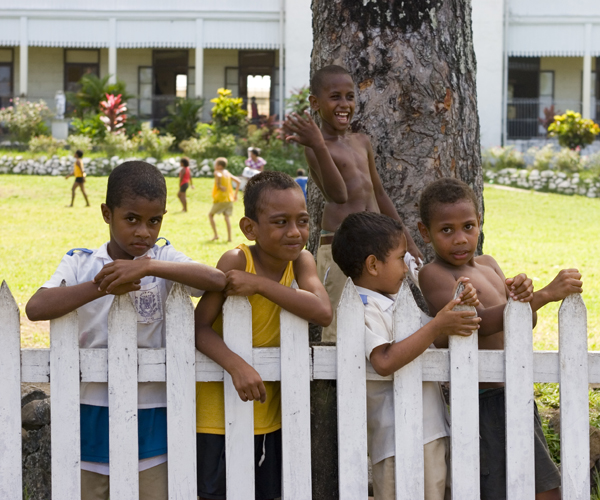



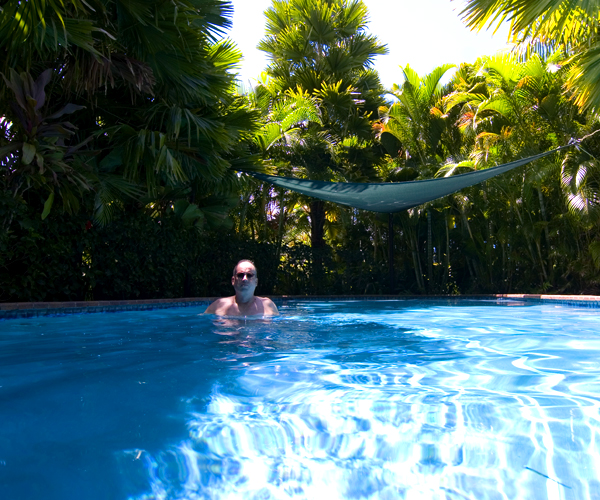

Recent Comments